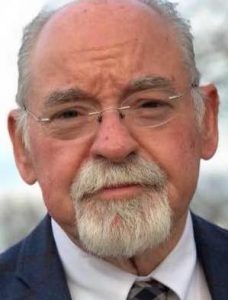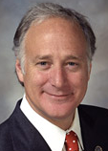Seven bills already filed in legislative session would allow more public access to information
We’re not quite seven weeks into the Texas Legislature’s 2019 session that began January 8 and seven bills already have been filed to make it easier for the public to get access to a wide range of records maintained by government agencies.
These bills came out of the efforts of the nonpartisan, grassroots Texas Sunshine Coalition made up of 16 organizations that have been working to protect open government and the public’s right to know.
The organizations cover the entire political spectrum, from the liberal ACLU of Texas to the conservative Texas Public Policy Foundation. The Austin Bulldog published in-depth story about the Coalition’s goals January 7, 2019.
If these bills manage to survive the legislative sausage-making to become law they would greatly improve public access to important information now shielded from disclosure. The full text of all seven bills are linked at the bottom of this story.
Many of the House bills discussed in this article are scheduled for hearings before the State Affairs Committee starting 10:30am Wednesday February 27.
HB 147 would open dead suspect’s file and more

State Representative Joe Moody (D-El Paso) filed HB 147. As speaker pro tempore of the Texas House and vice chair of the Calendars Committee he seems in a good position to push it through the lower chamber.
HB 147 would plug the “dead suspects loophole” that blocks release of records relating to a criminal case that has not been adjudicated. Here in Austin, for example, the “police declined to release the video of 19-year-old Zachary Anam, who fatally shot himself in the back of a police car after a January 2017 arrest for shoplifting,” according to an editorial published by the Austin American-Statesman January 10, 2019.
HB 147 also would allow release of information related “to a peace officer who is the subject of a criminal or internal investigation arising out of the peace officer’s involvement in the detection, investigation, or prosecution of a crime.”
That provision would benefit criminal defendants and attorneys like Moody. He’s a former assistant district attorney of El Paso County and his private law practice focuses on criminal defense and criminal appeals.
But the bill does not sit well with law enforcement.

Charley Wilkison is executive director of the Combined Law Enforcement Associations of Texas (CLEAT), an Austin-based organization that has more than 24,000 members and 103 local affiliates, he said.
“Accusation of wrongdoing at your workplace does not mean that it’s true,” Wilkison said. “CLEAT is on the side of peoples’ opportunity to defend themselves, prove they are innocent if possible, and serve the ends of justice.”
“It’s a defense attorney’s dream,” he said of HB 147. “Every time an officer is put on the stand they will get his file and bring up that false accusation he was up on. It’s tainted. We’re going to make sure that Representative Moody hears our side and understands the magnitude of what it means.”
He noted that Texas has led all other states in line-of-duty deaths for law enforcement officers, a claim supported by PolitiFact Texas. “The least we can do is when officers are accused they should get a hearing. And if falsely accused and cleared then the accusations” should not be dredged up in criminal trials.
“It’s a very dangerous time for police officers, politically. We’re coming from a time when politicians couldn’t wait to be seen in a photo with them.”
The bill also would apply retroactively to records created before the legislation becomes effective.
Wilkison said, “We represent the El Paso Municipal Police Association and the El Paso Sheriff’s Office Association—easily over 2,000 members in Moody’s district—and we’ll make sure he’s visiting with them. We hope he’ll be open to listening to his union members back home.”
HB 1655 would allow date of birth access

This bill filed by State Representative Todd Hunter (R-Corpus Christi) would make public the dates of birth except in the context of an employee’s personnel files per Texas Public Information Act Section 552.102 or otherwise provided by constitutional or statutory law.
The Texas Supreme Court in Paxton v. City of Dallas ruled that all dates of birth were private.
But access to dates of birth are vital, for example to correctly identify criminal suspects and to allow lenders to perform background checks needed to make credit decisions.
“Dates of birth in public records help voters check the age and background of those running for office,” states the Texas Sunshine Coalition’s website. “If someone has a common name, such as John Smith or Christopher Williams or Jose Garcia, a date of birth can help verify the person’s identity. Journalists and all citizens use dates of birth to accurately identify someone charged with a crime, including a school official who may have had a sex offender conviction.”
The bill would only apply to public information requests filed on or after the effective date of the legislation.
HB 1700 eases access to records on private devices
Representative Hunter also filed this bill, which would make more explicit the requirement for government officers of employees to keep or turn over to the officer for public information the official information they receive or send on private devices.

This bill might be thought of as the Tommy Adkisson Act, named for the infamous case of the former Bexar County commissioner’s long-running refusal to turn over these kinds of records—in spite of an open records ruling by the Texas Attorney General and a district court order.
He didn’t relent until after he lost in the Third Court of Appeals, then settled the lawsuit and released the private emails, according to an San Antonio Express-News article of May 6, 2015. (Adkisson was running for mayor of San Antonio but placed a distant fourth in the May 9, 2015, election.)
Those emails showed that Adkission was doing everything he could to follow the advice of a lobbyist in making transportation policy for the San Antonio-Bexar County Metropolitan Planning Organization, which he chaired, the article stated. “We all suspected she (the lobbyist) was calling the shots, that he was doing everything she wanted him to do,” said Bexar County Judge Nelson Wolff.
HB 1700 would end such resistance to release of public information by designating an officer or employee, as well as a former officer or employee, of a government agency who creates or receives public information a “temporary custodian” of the information until it has been provided to the agency’s officer for public information.
Upon receipt of a public information request, the bill would allow the government agency’s officer for public information to request such information and notify the attorney general if it’s not provided. The attorney general could then file suit seeking a writ of mandamus to compel surrender of the information.
If the official files a general denial and a sworn affidavit stating he’s not in possession, custody or control of information responsive to the public information request, then the attorney general’s lawsuit could be dismissed with prejudice, meaning it could not be refiled on the same grounds.
The bill ends by adding that the official who has the information commits an offense if, with criminal negligence, the official fails to surrender it.
HB 2191 also focuses on temporary custodians

State Representative Giovanni Capriglione (R-Keller) filed this bill, which is similar to Hunter’s HB 1700 but it includes other provisions as well:
• It requires temporary custodians of public information to comply with records retention requirements set forth in state law.
• It requires medical information to remain confidential.
• It allows a governmental body to designate one email address and one mailing address on its website for the purpose of receiving written requests for public information. Doing so would allow the governmental body not to respond to public information requests that are not received at one of those addresses.
• It tasks the attorney general with creating a public information request form that provides the requestor the option of excluding from a request information the governmental body determines is confidential or subject to an exception to disclsoure the governmental body would assert. The form would be posted to the governmental body’s website if it maintains one.
• Makes clear that the current or former officers or employees do not have a personal property right to public information created or received while acting in their official capacity.
HB 2191 has not been sent to a committee for consideration.
SB 943 & HB 2189 tackle major obstacles

State Senator Kirk Watson (D-Austin) filed SB 943 to overcome restrictions on access to public information that resulted from two Texas Supreme Court decisions delivered in 2015:
The Boeing Co. v. Paxton—The Justia summary of this decision cites the Texas Public Information Act’s exception that protects information that “if released, would give advantage to a competitor or bidder.”
A former Boeing employee filed a public information request with the Port Authority of San Antonio for Boeing information. Boeing provided some but withheld other information citing competition. The Attorney General ruled none of the information was exempt from disclosure. The trial court agreed. The appeals court affirmed. But the Supreme Court reversed, holding that if released it would give Boeing’s competitors an advantage.
The Boeing decision has been cited again and again in attorney general rulings that authorized government agencies to withhold important information. The Texas Sunshine Coalition webpage cites some two dozen examples, ranging from requests for information about cannabis-growing operations and police body cameras to final contracts involving the University of Texas, the City of San Antonio, and the City of Houston, among others.
Greater Houston Partnership v. Ken Paxton et al—The question for the court was whether a private entity operating like a chamber of commerce is a “governmental body” subject to public disclosure of its private business affairs. The key criteria is whether the organization is “supported in whole or in part by public funds.” The Texas Supreme Court held the Greater Houston Partnership is not so supported and is not a “governmental body.”
The attorney general ruled that the Greater Houston Convention and Visitors Bureau need not release information even though 90 percent of its revenue comes from public sources, a Texas Sunshine Coalition webpage states. The decision was cited to allow withholding of information about organizations that got millions of dollars in tax funds, including Southwest Key, a provider of, among other things, the controversial shelters for immigrant youth.
The Texas Sunshine Coalition objects to these two Supreme Court rulings and continues to push for legislative remedies.
“Last session a bipartisan coalition came together to close loopholes that these two rulings created, but we were stonewalled by a committee chairman who refused to give the bills a vote,” Watson said in a press release.

That chairman was State Representative Gary Elkins (R-Houston), who headed the House Committee on Government Transparency and Operation. Elkins lost his bid for reelection to Democrat Jon Rosenthal.
SB 943, and its identical HB 2189 carried by Representative Capriglione would, according to the joint press release on these bills, address legitimate business concerns in protecting proprietary information but ensure the public can obtain key information about deals made by state and local governments.
“Month after month, year after year, in Texas we have seen the erosion of the public’s right to know,” Capriglione said in the press release. “Bad actors have used legal loopholes to hide their contracts with government entities. Over the past two years we have worked diligently with a variety of stakeholders to find common ground to create this legislation.
“I look forward to working with the public and other members of the legislature to bring our Sunshine laws back to where they deserve to be,” Capriglione said.
These bills state, “Contracting information is public and must be released unless specifically excepted from disclosure” under other provisions of the Act.
To establish an exception for competitive reasons the governmental body would have to establish that the competitive “situation at issue is of a recurring nature or there is a specific and demonstrable intent to enter into the competitive situation again in the future.”
Another exception would be established for a contractor or vendor who establishes proof of proprietary information that would cause harm to the contractor or vendor if released.
But these bills would ensure the public can obtain key information about government contracts, including the overall price and deliverables and whether the contractor performed as required by the contract.
Spending for parades, concerts or other entertainment

State Representative Terry Canales (D-Edinburg) is the lead author of HB 81, which would permit the public to know how much money a governmental body spends for a parade, concert, or other entertainment event open to the general public and paid for in whole or in part with public funds.
In 2015 entertainer Enrique Iglesias was paid by the City of McAllen, which is within Caneles’ district, to sing at a holiday concert and parade. “City officials still refuse to tell residents how much Iglesias was paid to perform…” according to the National Freedom of Information Caucus, another result of the Boeing decision.
Links:
HB 81 relating to the disclosure under the public information law of certain information related to parades, concerts, or other entertainment events open to the general public that are paid for with public funds
HB 147 relating to access to certain law enforcement, corrections, and prosecutorial records under the public information law
HB 1655 relating to dates of birth under the public information law
HB 1700 relating to public information in the possession, custody, or control of a current or former officer or employee of a governmental body; creating a criminal offense
HB 2189 relating to the disclosure of certain contracting information under the public information law
HB 2191 relating to the public information law
SB 943 relating to the disclosure of certain contracting information under the public information law
Have something to say?
If you want to testify about any of these bills, check the State Affairs Committee meeting agenda to see which ones are scheduled for hearings to start 10:30am Wednesday February 27.
Related Bulldog coverage:
City of Austin Fighting Transparency: On eve of third Open Government Symposium, City opposing court decisions and open records, February 6, 2018
Public Information Now Harder to Get: Despite lengthy negotiations and compromise most open government legislation was blocked in 2017 Texas legislative session, October 16, 2017
Big Win for Public’s Right to Know: No more hiding identities of public officials who do government business on private emails, April 11, 2016
Surfing New Wave Open Government: Symposium panelist says local efforts show potential but Austin not open government leader, April 23, 2015
Ethics Bills Face Complex Dynamics: Open government legislation would move public official investigations, open financial reports, April 20, 2015
Open Government Aids Defendants Too: Criminal cases opened through Michael Morton Act makes big difference for prosecutors as well, April 15, 2015
County Attorney Reports Lessons Learned: His investigation of Austin City Council’s open meetings violations resulted in improvements, April 15, 2015
Why Acting Ethically, Legally Matters: Many a high-profile scandal persisted for years because nobody stepped forward, April 14, 2015
Appeals Court Demands Email Release: Third Court of Appeals decision once again requires emails on private accounts to be released, March 10, 2015
Want More Open Government? Key lawmaker and nonprofit advocacy group pitch for public support on pending legislation, March 19, 2015
Litigation Challenges Open Government Laws: Attorneys criticize criminal penalties and public access to elected officials’ private email accounts, April 24, 2013 (Part 3 of a 3-Part Series)
Social Media’s Impact on Open Government: Few government organizations have dealt with how Facebook, Twitter use affects compliance, April 23, 2013 (Part 2 of a 3-Part Series)
City Hosts Open Government Symposium: Lawyers attending for education credits abound, much of day has little to do with city practices, April 22, 2013 (Part 1 of a 3 Part Series)
City Hosting Open Government Symposium: Follows county attorney’s investigation of City Council open meetings violations, March 19, 2013
Trust indicators:
 Ken Martin has been covering local government and politics in the Austin area since 1981. See more on Ken on the About page.
Ken Martin has been covering local government and politics in the Austin area since 1981. See more on Ken on the About page.
Email [email protected].
Who funds this work? This report was made possible by contributions to The Austin Bulldog, which operates as a 501(c)(3) nonprofit for investigative reporting in the public interest. You can help support this independent coverage by making a tax-deductible contribution.
An alphabetic list of donors who have contributed to The Austin Bulldog since the organization was formed in 2009 and the cumulative amount each person has given through December 31, 2018, are listed on the Contribute page.







